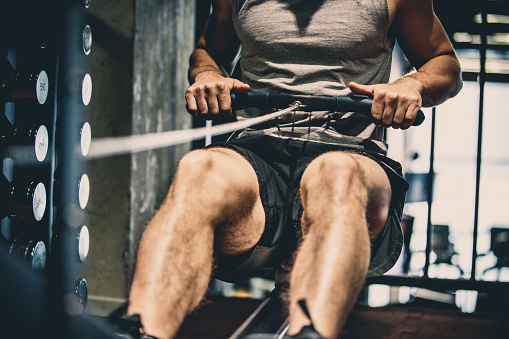Are you one of the 6.2 million Australians with a gym membership? Did you sign a waiver that said in the event of an injury you wouldn’t sue for damages? As pandemic lockdown restrictions ease and we all flood back to fitness facilities to work off those COVID kilos, it’s important to understand the law regarding injuries and accidents in the gym.

Fitness is a two billion dollar industry in Australia, with more than 6,000 gyms and fitness centres. The fastest-growing segment has been in 24-hour access gyms, which are unstaffed for part or most of the time. This represents a significant culture shift from when instructors roamed the gym floor correcting workout techniques, giving advice, and generally keeping an eye on things.
Carbone Lawyers Head of Personal Injury Law, John Karantzis, says signing a waiver doesn’t absolve the gym operator from their responsibilities to their customers and doesn’t stop you from suing them if you get injured.
“Those running a gym have a duty of care towards people on their premises. Services must be delivered with due care and skill and be fit for service, “ explains Mr Karantzis.
For gym operators, ‘due care includes ensuring equipment is fit for purpose and correctly maintained at all times, and that members have received correct guidance on how to use it.
“A gym operator, or authorised representative such as a gym instructor, is responsible for your safety at the gym and in the use of gym equipment. The gym operator or instructor should demonstrate to you the correct way to use gym equipment and should point out to you any reasonably foreseeable dangers in the use of such equipment,” says Mr Karantzis. “Any failure on the part of the operator or instructor in warning you of any reasonable associated risks may give rise to a claim.”
Health and fitness experts say customers need to realise they are particularly vulnerable to injury and accidents after a long period of inactivity. According to Christopher Williams from the University of Newcastle, people can experience a significant decline in muscle mass, physical function, strength, aerobic capacity and metabolic function in as little as ten days of inactivity.
Writing for The Conversation, Associate Professor Williams warns that people returning to exercise after a long break may experience tighter muscles, stiff joints and a lower threshold
“… engaging in high-intensity movements or increasing loads too quickly can be a risk for injury. People might assume they can jump back into pre-pandemic exercise without considering the reduced capacity of their body.”
John Karantzis says if you sustain an injury because of over-enthusiastic exertion, it’s unlikely the gym will be found culpable. However, if you are injured on a pin-loaded or cable machine because it wasn’t adequately maintained during the lockdown, a waiver won’t stop you from seeking damages against the gym operator.
WHAT TO DO IF YOU GET INJURED AT THE GYM:
1: Follow the emergency procedure
All gyms are required to have an emergency protocol for when the venue is unstaffed. This includes a panic/emergency button and a first aid kit. Some 24-hour gyms will also have constant closed-circuit TV monitoring.
2: Seek medical attention
Even if your injury did not require an emergency response, try to see a doctor as soon as possible. Be sure to describe the incident and your injury in as much detail as possible. Your doctor’s records may be vital in any future legal action.
3: Take photos
Photographic evidence is vital for any future claim. If you are unable to take the photos yourself, seek help from someone nearby.
4: Witnesses
Get the name and contact details of anyone else in the gym who saw the incident or helped you.
5: File a Report
Make a formal incident report with the business as soon as possible. Be sure to get a copy for your records and never sign any document offered by the gym operator.
6: Seek Legal Advice
Call Carbone Lawyers on 1800 369 888